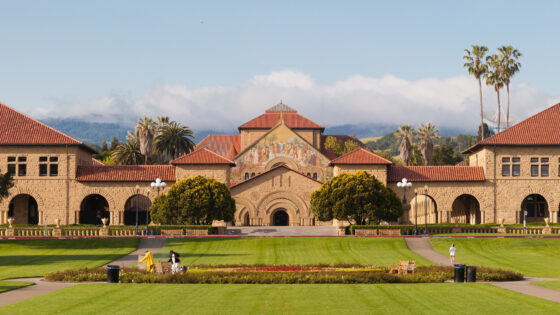The great Karl Weintraub, a historian in the University of Chicago’s Committee on Social Thought, once told me that anyone willing to exert a modicum of energy could have a lot of influence on the committee. After all, the members of the committee are distinguished scholars who, for the most part, prefer not to be bothered with administration. The same is true to a point of all academic governance. Not many people become professors in the hope of becoming movers and shakers in their departments or professional associations, and, in my experience, the majority of academics in my discipline, political science, have no idea of or interest in what resolutions the American Political Science Association is planning to pass.
For this reason, academic associations are vulnerable to takeover by determined activists. That is what happened at the American Studies Association. The ASA is no stranger to political activism, yet even its members were not prepared for the propaganda push that took place at their annual conference this year. For example, the pro-boycott forces organized a “town hall” to discuss the boycott that was, by design, more like a rally. Sharon Musher, director of American Studies at Richard Stockton College and an opponent of the boycott, has described what took place for the Times of Israel. The town hall
“was a vitriolic anti-Israel event that served as a platform for promoting the boycott resolution . . . .. One of the authors of the proposal (J. Kehaulani Kauanui) was on the panel, participants in the Activism Committee were pointed out to audience members, and the resolution was handed around the room of nearly 500 for signing. Each of the six speakers articulated the same ideological message about ending the settler-colonialist Zionist project and America’s complicity in maintaining an Apartheid state.”
The “pro-boycott rally was followed by an award ceremony — given to Angela Davis, an outspoken opponent of Israel – and then the Presidential Address … used to advocate for the boycott.”
Up next is the Modern Language Association which, with 30,000 members involved in the teaching and study of language and literature, is about six times the size of the American Studies Association. The MLA, at its annual conference early next month, does not have a boycott resolution before it, but it will have a boycott roundtable. It issupposedly an open discussion: “Many academics face questions about how to respond to this boycott or how to evaluate academic boycotts more generally.”
They have gathered an interesting panel for this “discussion.” Omar Bhargouti is a founder of and leader in the international BDS movement. Barbara Jane Harlow, a professor of English at the University of Texas, Austin, wrote a statement in favor of the ASA boycott and has long been on record in favor of one. David Lloyd is a member of the “Organizing Collective” of the U.S. Campaign for the Academic and Cultural Boycott of Israel. Richard Ohmann, a professor of English at Wesleyan University, signed a 2009 letter calling Israel’s treatment of Palestinians “one of the most massive, ethnocidal atrocities of modern times.”
Samer Ali, the chair and respondent of the panel, told the Chronicle of Higher Educationthat he set up the panel to serve those who wished to discuss the pros and cons of the resolution. Yet, as Haaretz reports in its own piece on the stacked MLA roundtable, Ali has been vigorously defending the ASA boycott on his Facebook page and, unless there is more than one Samer Ali who lives in Austin, Texas and is interested in the ASA boycott, has signed a letter to the ASA (he is number 3,681) offering the signatories’ “deepest congratulations and full support for the ASA National Council’s historic and principled decision to endorse and honor the Palestinian civil society call for the academic boycott of Israel.”
His “response” should be interesting.
As Musher’s account indicates, this is the playbook. Once the roundtable, whose audience will no doubt be packed with boycott supporters, has come off, a boycott resolution will be proposed for next year, justified in part by the strength of support evident at the roundtable. Many members will be caught by surprise, just as members of the ASA were, because few academics pay attention to what their professional associations are doing.
The good news is that the ASA boycott has been a wake-up call, and it is becoming clear, because the ASA is being denounced in places like the Nation and by people like Michael Kazin, the editor of Dissent, that even the left has little appetite for an academic boycott. This will not and should not be primarily a struggle of pro-Israel against anti-Israel forces, or of the right against the left, but a struggle to preserve what integrity scholars have left, against attempts to turn them into mouthpieces for a fringe movement.
But there is no natural party of moderation. People who disdain academic politics will have to get organized. There is still time.



